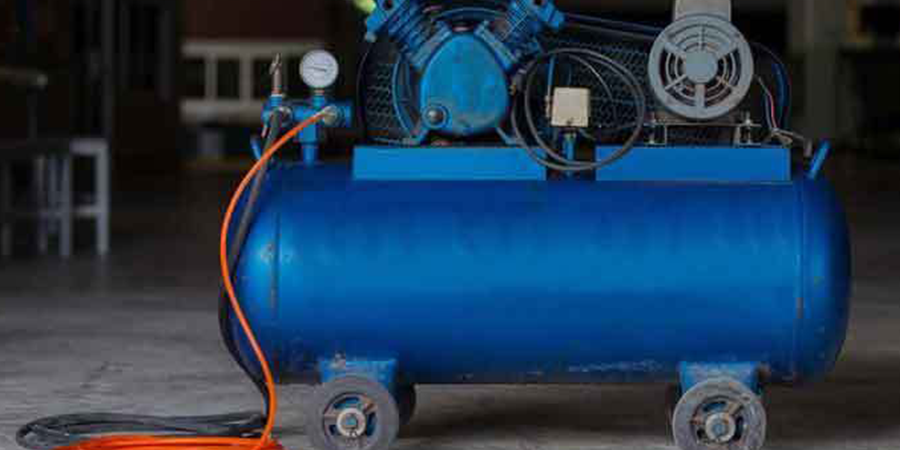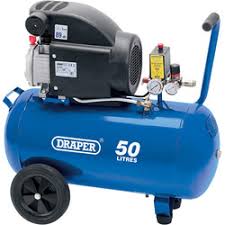Are you frustrated with your air compressor making unbearable noise? Searching for ways to ensure your home and office are soundproof? We agree that it is useful to own an air compressor. But we too were troubled by unnecessary noise like you. Then we found out how to quiet an air compressor. Now, our home is more peaceful than ever. If you continue reading, we will let you in on my secrets!
What is the Ideal Noise Level for an Air Compressor?
Before learning about quieting an air compressor noise, you should know how the noise level works. Knowing when to consider that noise is too much to tolerate is crucial. Whenever it concerns sound, the international unit for measurement is the decibel (dB).

Most of the time, people prefer air compressors that come with high ratings. When it comes to air compressors, a higher decibel rating means the higher noisier it tends to be. Generally, a noise of 70 dB to 90 dB is generated from the most common air compressors. If the noise of your air compressor is below 70 dB, that can be considered tolerable. But you may still want your home to be quieter.
To break it down,
40 dB – This is rated as low noise. Hence this rating is what you should be looking at while purchasing an air compressor for your household or domestic use.
60 dB – Considered as the most balanced level of noise for this equipment. It is going to be more economical, and it is still very suitable for domestic use.
85 dB and over – This is not a good level of noise for an air compressor. Exposure to noise for long periods at this level can be problematic for your hearing. Especially those who work in an industrial setting should be cautious.
One of the most important considerations for making your purchase is to pick the appropriate air compressor with the right decibel level.
Why Are Air Compressors Noisy?
By this time, it is obvious to you how to think about your air compressor’s noise level. Now is the time to learn what is causing the situation. When you find out about noise sources, it’ll be simpler for you to learn to quiet an air compressor. Among many factors that make your compressor noisy, some of the common ones are intake noises, vibration, and exhaust noises.
If everything occurs simultaneously, indeed, it isn’t that good for your hearing, your peace and quiet. The following list consists of the factors that cause your air compressor to be noisy:
Produced Vibrations:
It is not a surprise that a machine such as an air compressor will vibrate a lot. Actually, this is the basic cause of the noise coming from the air compressor. It won’t be the key factor, though; it is still a considerable issue.
Air Intake:
In an air compressor, the air compressor’s intake component is deemed to be one of the loudest sections. Air is absorbed through this part into the air compressor. This mechanism is similar to that of a vacuum cleaner. It generates a high volume of noise during this process; in fact, it is the loudest.
Air Exhaust:
This is the portion that lets the byproduct of the air compressor out. This is the second loudest when it comes to making noise.
Types of Built-Material:
A high-quality material, the well-built compressor, will indeed reduce noise. You will have less noise than average if your compressors are made with thick and compact material. If not, more noise will be produced.
Type of Compressor:
Bigger compressor machines will naturally make more noise than the smaller ones. Some compressors are designed to be less noisy, and they tend to be on the expensive side.
The Placement of the Compressor:
Your compressor’s noise level would also rely heavily on where you keep the compressor while it is in operation. Naturally, if you keep the compressor on top of a shaky surface, there would be a lot of noise from the compressor. A stable surface is the best to place an air compressor.
How to Quiet an Air Compressor – Noise Reduction Tips

You probably know the usefulness of the air compressors. They are used to operate various equipment and machines effectively worldwide. Compressors have become a vital part of the business for many industries, regardless of gas or electricity. The only drawback to it is the noise it creates.
While it is necessary to find an air compressor which has a suitable decibel rating, it is possible to reduce the noise with a few simple tricks. The suggestions below on how to quiet an air compressor are bound to help you. Let’s take a look!
Connecting a Muffler:
Connecting a muffler will be excellent if your air compressor is too loud. It is most likely already available in your household. Place the muffler on the intake of the compressor, and it will indeed reduce the sound.
Wrapping the Machine:
By wrapping your compressor with a carpet or a mat will reduce the sound coming from the compressor. It will be a very low cost in this way.
Move It Outside:
If things get out of hand, it could be worth placing the entire compressor outside.
Placement:
Make sure to place the compressor on a stable surface as opposed to a shaky one. It will save you a lot of annoyance.
Using Rubber:
Isolation of the compressor with the help of a thick plate of rubber is going to reduce the noise. Rubber being an excellent insulator, will absorb most of the noise. It will also prevent the compressor from touching any surface.
Use a Silencing Device:
Using a silencing device on the intake and exhaust port of the compressor will make sure the noise coming out is as small as possible.
Use Lubricants:
Lubricating the bearings and other parts of the machine is another way. It will make sure the compressor runs as smoothly as possible. In this way, the noise will be reduced.
Check the dB:
Check the decibel rating of the compressor before buying one. If the rating is lower, the air compressor is quieter.
Final Thoughts
An air compressor helps you with inflating a tire of your car to assist you with a nail gun; it is packed with many possibilities. It is important to note that all compressors produce noise. Some produce more than others. But we assure you that applying these techniques on how to quiet an air compressor can certainly bring the noise in control. They’ve worked for me, and I hope you’ve found a favorite trick too!
